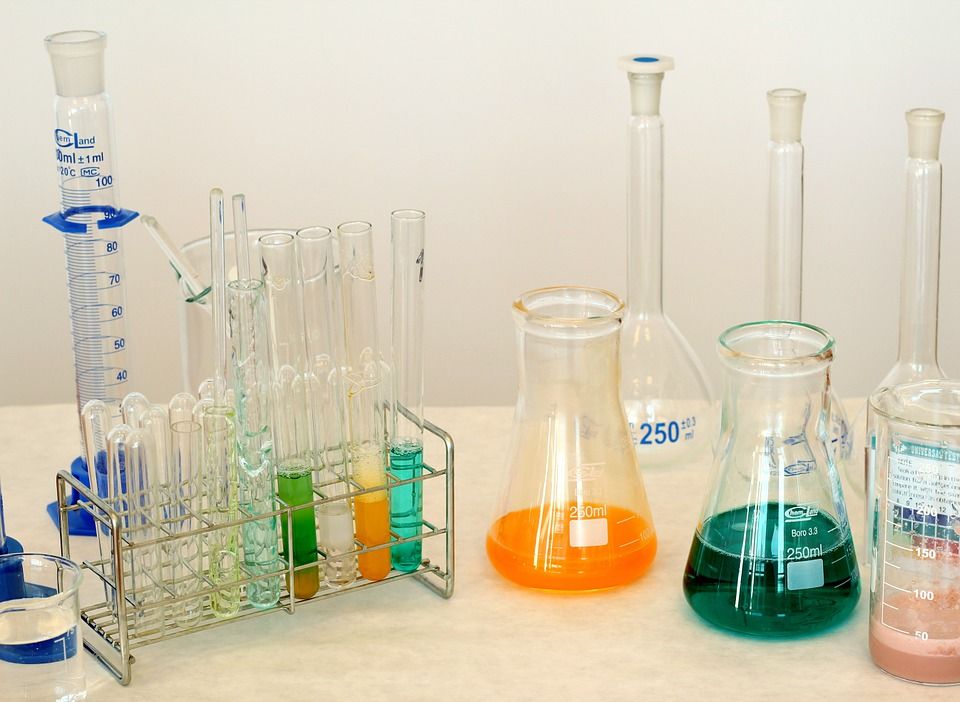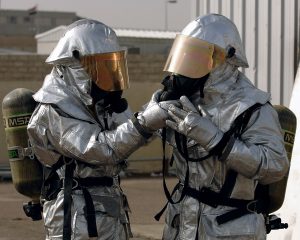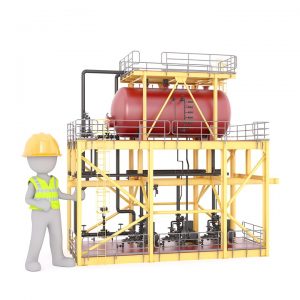Chemical Engineering - As a career option

Ask any industrialist in the world and they’ll tell you that there are three “evergreen” branches of engineering – mechanical, electrical, and chemical. This is because no matter where humanity ends up in the future, it will not survive without these three disciplines. Hence, a Chemical Engineer does one of the most vital jobs in the world.
Is a Chemical Engineer a Chemist?
Yes and No.
Chemists are people who dedicate their lives toward studying and understanding the substance of the world around us. They hang out in labs donning white coats and safety glasses and do cool stuff with test tubes and reagents that help them “invent” new things. These inventions may be very important, but…
…merely inventing something doesn’t help anyone.
Why Not?!
Take an example: you may have invented the cure for cancer, but before it can actually save lives, somebody has to use that cure to “develop” a drug and “manufacture” it at a massive scale so that everyone under the sun can reach it. A miracle that is just on paper is of no use.
To do that, you need a LOT of money, and chemists simply aren’t that rich!
A Chemical Engineer borrows the technology from the chemist, borrows the money from an industrialist (or even the bank!) and builds products that are cheap, easy to make, and high in quality. They create “value” by putting the new invention and the country’s money to good use. Look up “List of Largest Companies by Revenue” on Wikipedia; 18 out of the 20 richest companies in the world are almost exclusively run by Chemical Engineers!
So, to Sum up the math
Chemistry + Economics = Chemical Engineering
Do you want to be a Chemical Engineer?
Being a chemical engineer isn’t the easiest thing you can do with your life. It is a position of responsibility, and you have to be on top of the process at all times. What makes the experience rewarding is the logical reasoning, the maths, and the knowledge that you are in the driver’s seat as humankind reaches new horizons of greatness.
Eligibility Criteria To Become a Chemical Engineer
- +2: Have to take science after class 10
- Bachelor’s Degree: B.Tech in Chemical Engineering
- Master’s Degree: A Master’s Degree (M.Tech) in Chemical Engineering (optional)
A Day In The Life Of A Chemical Engineer
Hi. I’m Tara! I’m a chemical engineer and I work in a chemical plant. Plants can be as small as the room you’re sitting in, or larger than your entire locality. My work life can vary – sometimes I sit in comfy chairs in air conditioned offices, and at other times I do hands-on work outside in the plant itself. Most days, however, I do a mixture of both. Here’s what I usually do on a typical day:

7:00 AM: I glaze through the oil and raw material prices in the newspaper over breakfast. This has become a habit.

9:00 AM: I drive over to the plant. The first thing I do is check the overnight process logs – did the production process run smoothly? No! – a certain process unit has been acting up. Hm…

11:00 AM: I put on protective gear and pay a visit to the site. I play with the faulty unit, checking the process variables – temperature, pressure, flow-rate, density – a small fluctuation can cost millions of dollars! I can’t figure out the problem; this is going to be more difficult than I thought.

1:00 PM: I call and attend a meeting to discuss the fate of the faulty unit in the plant. The unit is a distillation column that separates methane and ethylene, and it hasn’t been producing the desired purity. This is costing the plant tens of thousands of dollars every day! We make some quick decisions and create a plan of action.

1:30 PM: After the meeting, my boss, Atul, decides to stop the unit for now and instructs me to redirect the process stream to a different distillation column. He then builds me a team to troubleshoot the faulty unit and specify a time and capital budget to fix it.

3:00 PM: I go back to the site with my new team: myself (the chemical engineer), a mechanical engineer to look for structural faults, a chemist to assess the purity of the product, and a process designer from a company that built the distillation column. After the initial inspection, we appoint a junior staff to take readings over a period of several days and produce a report. We go back and build a quick simulation of the unit on HYSYS, and schedule tests for the rest of the week.

5:00 PM: Atul calls for a report on the status of the column troubleshooting work, and we discuss the simplest course of action – where is the fault likely to be? Can it be fixed? Will fixing it be very expensive? Is it easier to just get a new one built?

10:00 PM: The line manager of the night shift gives me an urgent call: a steam valve in the plant has burst. This is a minor and very common problem in chemical plants. I give quick instructions on how to deal with the problem and inform process engineer of the mishap. I then call it a day.
Did you find Chemical Engineer's profession interesting? Are you planning to pursue it? Still confused? We hope that this article proved to be a fruitful one for you. Have your say in the comment box below. Enjoy Reading!
Login to continue reading
And access exclusive content, personalized recommendations, and career-boosting opportunities.
















Comments
Add comment